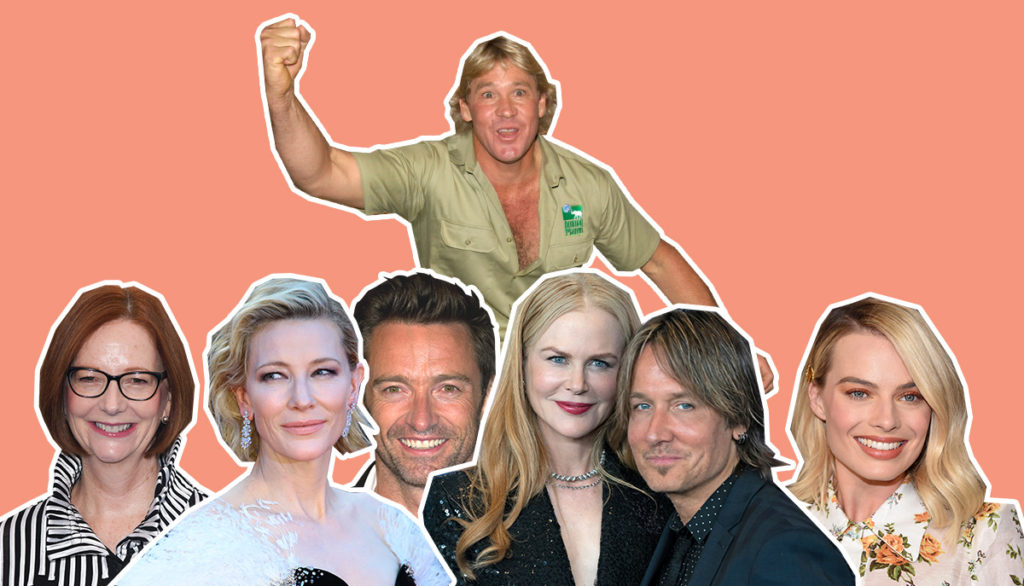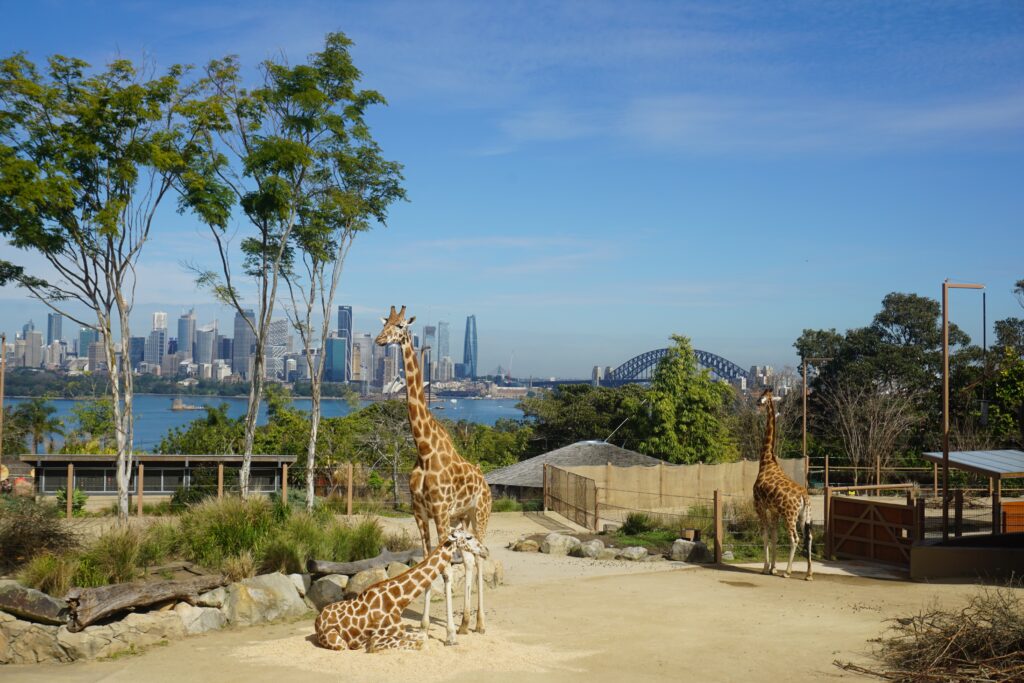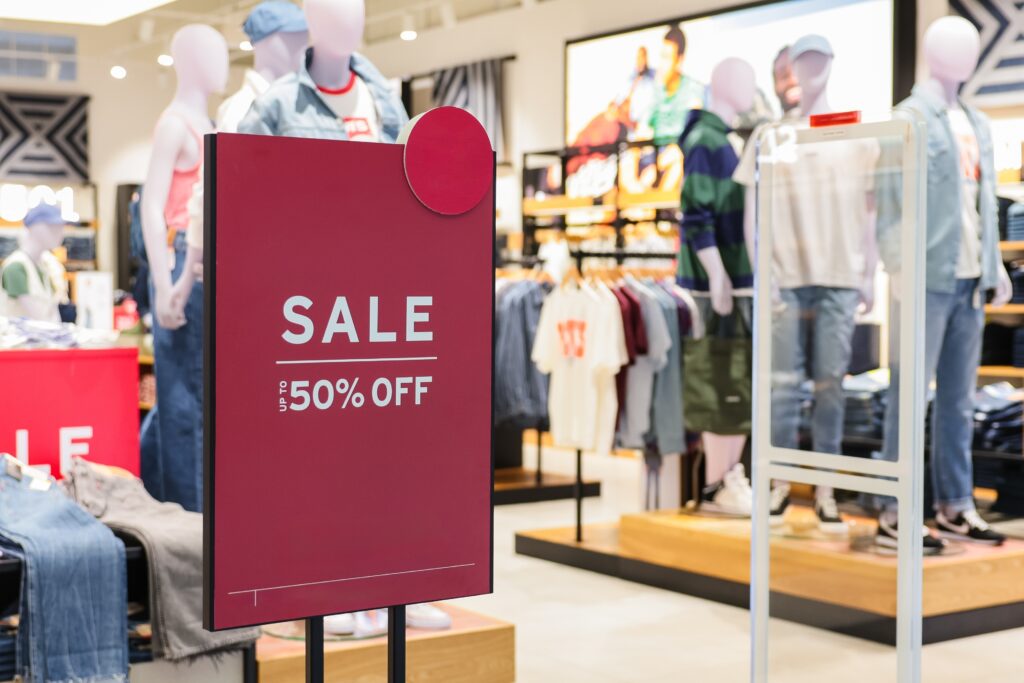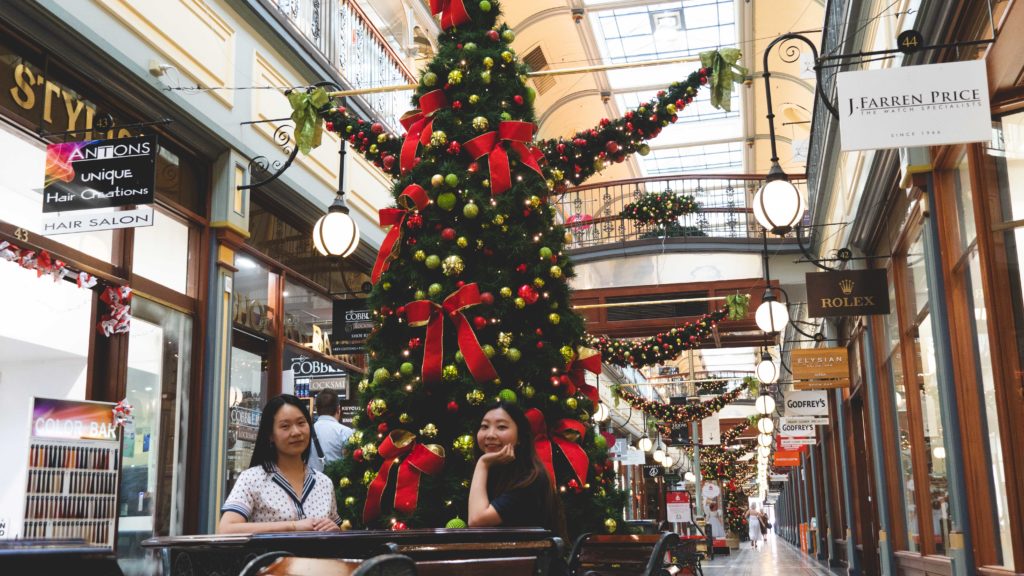Spend a bit of time living and studying in Australia, and chances are you’ll quickly encounter some quirky, colourful (and at times, completely confusing) Australian slang.
From chocky biccies to whoop whoop, if you’re after a little more practice, you can check out our ‘heaps good’ list of commonly used, modern Aussie slang here.
But what about regional accents? And does Australian slang differ from state to state?
Is there only one Australian accent?
When most people think of the Australian accent, their first thoughts might turn to the movies – say, Mike Dundee (Paul Hogan) of Crocodile Dundee, or Steve Irwin in The Crocodile Hunter. These notable Aussies speak with the most recognisable Australian accent in the world – that is, the ‘Broad Australian Accent’. Australian comedian Denise Scott, in the 2007 documentary The Sounds of Aus (2007), likens this to being much like ‘a long, flat line’ on a musical score.
“You try and just keep your words going along that flat line,” Scott advises, “don’t go up and down – just a long, flat line.” (Sounds of Aus)
While this well-loved, broader Aussie accent is definitely common in more rural Australian localities, this representation is also often grossly exaggerated in overseas film, advertising and media. The truth is, there’s definitely more than one Australian accent (and you’re unlikely to ever hear an Aussie exclaim “throw a shrimp on the barbie!”).
For easier categorisation, linguists tend to point to three main formal categories of Australian accent ‘speaking styles’ –
- Broad Australian – a longer drawl
(Speakers: conservationist Steve Irwin, Prime Minister Julia Gillard) - General Australian – the most common Aussie accent
(Speakers: actor Hugh Jackman, swimmer Ian Thorpe)
- Cultivated/Received Pronunciation – more formal, ‘British’ sounding
(Speakers: actor Cate Blanchett, Prime Minister Malcolm Fraser)
But the Australian accent is subtly very diverse. All Australian dialect types reflect Australian national identity – slight variations can further reflect a speaker’s other cultural affiliations or background (Lebanese, Greek, Vietnamese, Chinese, Indigenous, Irish, etc) which further shape general Australian ways of speaking. Indigenous Australian languages, culture, words and slang terms have in particular markedly shaped the wider Australian vernacular.
Word preferences across different states
Back in 2015, the Linguistics Roadshow conducted a public survey, wherein different word usages were mapped to particular regions or states. From state to state, across Australia certain words can have many variations or connotations.
“Shall we d-ARHNSE, or shall we d-ANSE?”
Between states, pronunciations of words can very slightly differ. When asked if the words ‘dance’ rhymed with ‘pants’ or ‘aunts’, South Australians answered strongly ‘aunts’ (a more British sound), while the majority of the country rhymed dance with ‘pants’.
“We’re off to beach! Grab your-“
When it comes to swimming, Australians are ready to jump right in – especially when it comes to words. A swimming costume might be likely to be nicknamed a ‘cozzie’ or ‘scungie’ in NSW, ‘bathing suit’ or ‘bathers’ in Victoria and ‘togs’ in Queensland.
“What do you call that Aussie food…?”
At a ‘sausage sizzle‘, that barbecued sausage and bread roll is more likely to be served to you simply as a ‘sausage in bread’ by Victorians, whilst those in NSW will give you a ‘sausage sandwich’.
Speaking of sangas (‘sandwiches’), while most Aussies use ‘peanut butter’, Queenslanders prefer ‘peanut paste’ as their spread of choice.
Ordering ‘scallops’ in Victoria, Tasmania and South Australia will get you seafood clams – except in NSW, where it’ll get you a potato cake.
What are known as ‘rockmelons’ to most parts of Australia are called ‘cantaloupes’ in Victoria.
Ordering a ‘frog cake‘ will get you a tasty cake treat in South Australia – but likely blank stares everywhere else.
And on a hot day in Perth, Melbourne or Tasmania you’re more likely to be offered an ‘icy pole’, as opposed to an ‘ice block’ in Sydney, Adelaide and Brisbane.
Can’t remember all these new words? S’all good, mate – no worries!
If you don’t yet know your Aussie slang by heart, don’t worry! Aussie slang comes up naturally in conversation only every now and then, so you don’t have to worry too much about having to perfect your Aussie slang repertoire. While it’s a fun stereotype, Australians are just as likely to greet you with a “how are you going?”, “hello” or “hey”, as they are with a “G’day” (see: Top Aussie Myths Debunked).
Still, if you want to know what the lingo is in your local area, check out Macquarie Dictionary’s Australian Word Map, where you can search and find particular Aussie regionalisms.
Onya mate!





